Top 30 movies by Mosfilm studio
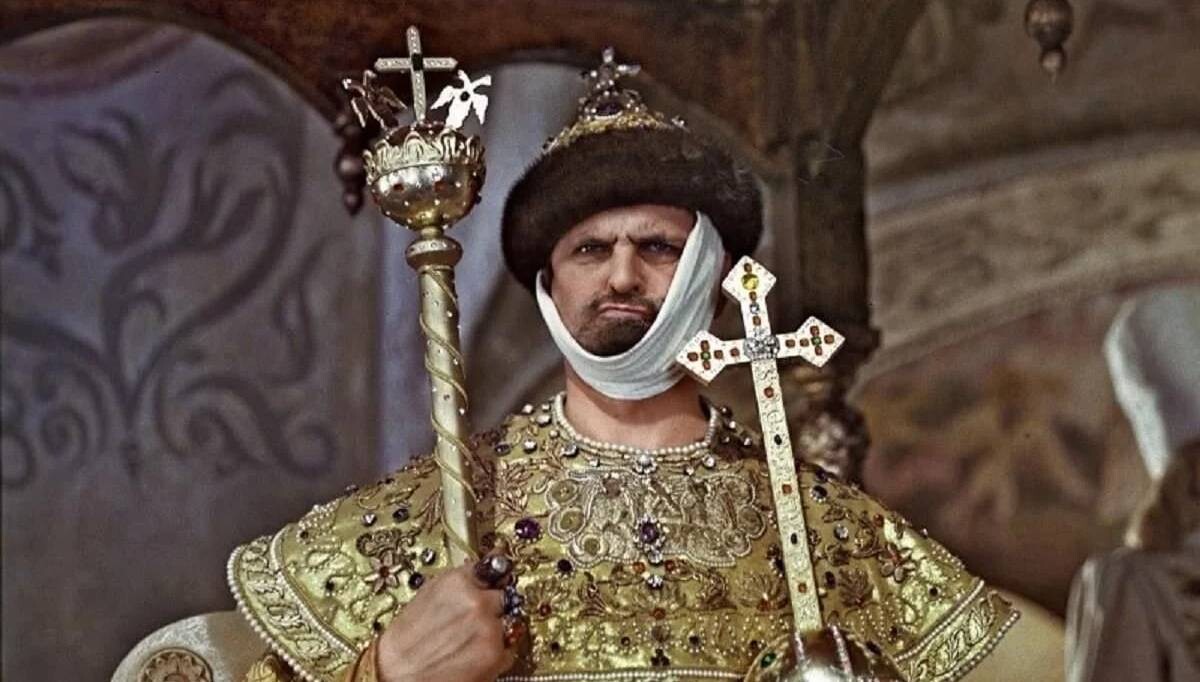
1. ‘Battleship Potemkin’ (Sergei Eisenstein, 1925)
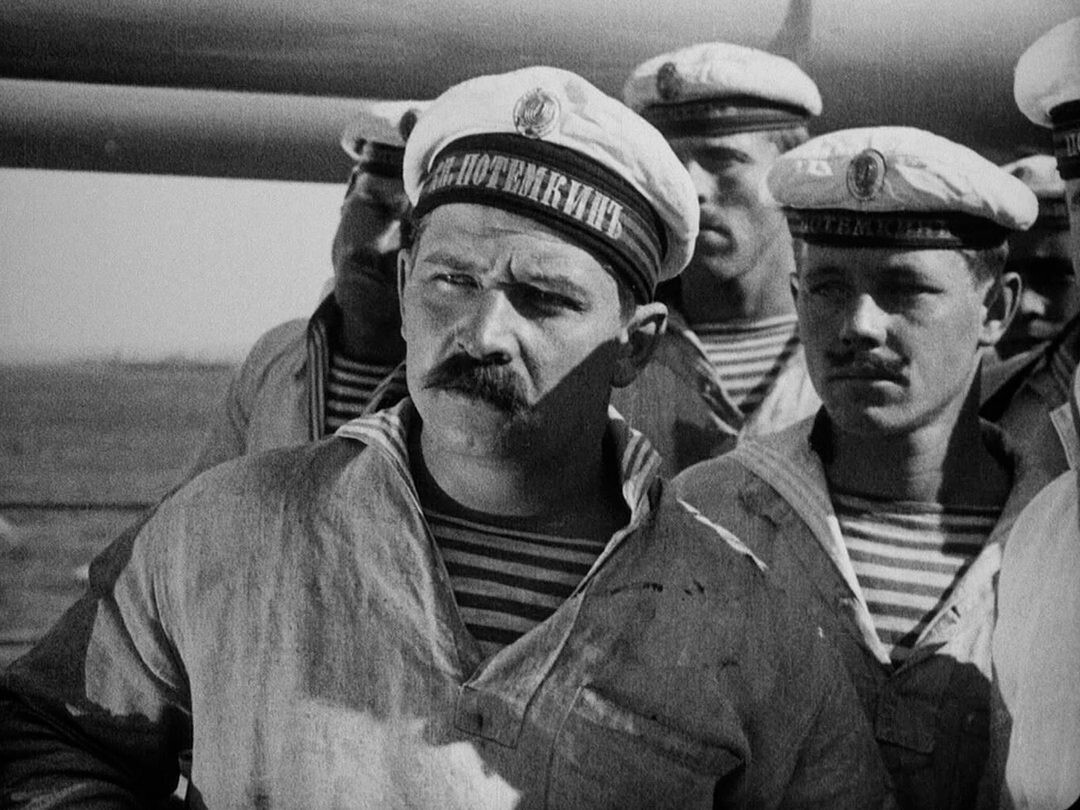
This movie is included in all the world rankings of the best motion pictures of all time and all nations. It’s a silent movie about the mutiny of the Black Sea Fleet sailors that marked the beginning of the 1905 Revolution. One of the most powerful and iconic scenes in the movie is when the city's residents run down the famous Odessa Steps, fleeing the bullets of government troops.
2. ‘October’ (Sergei Eisenstein, Grigory Alexandrov, 1927)

For the 10th anniversary of the 1917 Revolution, Sergei Eisenstein, considered the most prominent movie director in the early years of the USSR, filmed a new masterpiece. It centers around the revolutionary events in Petrograd in October and the storming of the Winter Palace. The movie is also the first attempt to portray Vladimir Lenin in cinema. It is believed that Eisenstein wasn't trying to recreate the real events, but was deliberately creating a myth of the Revolution.
3. ‘Jolly Fellows’ (Grigory Alexandrov, 1934)
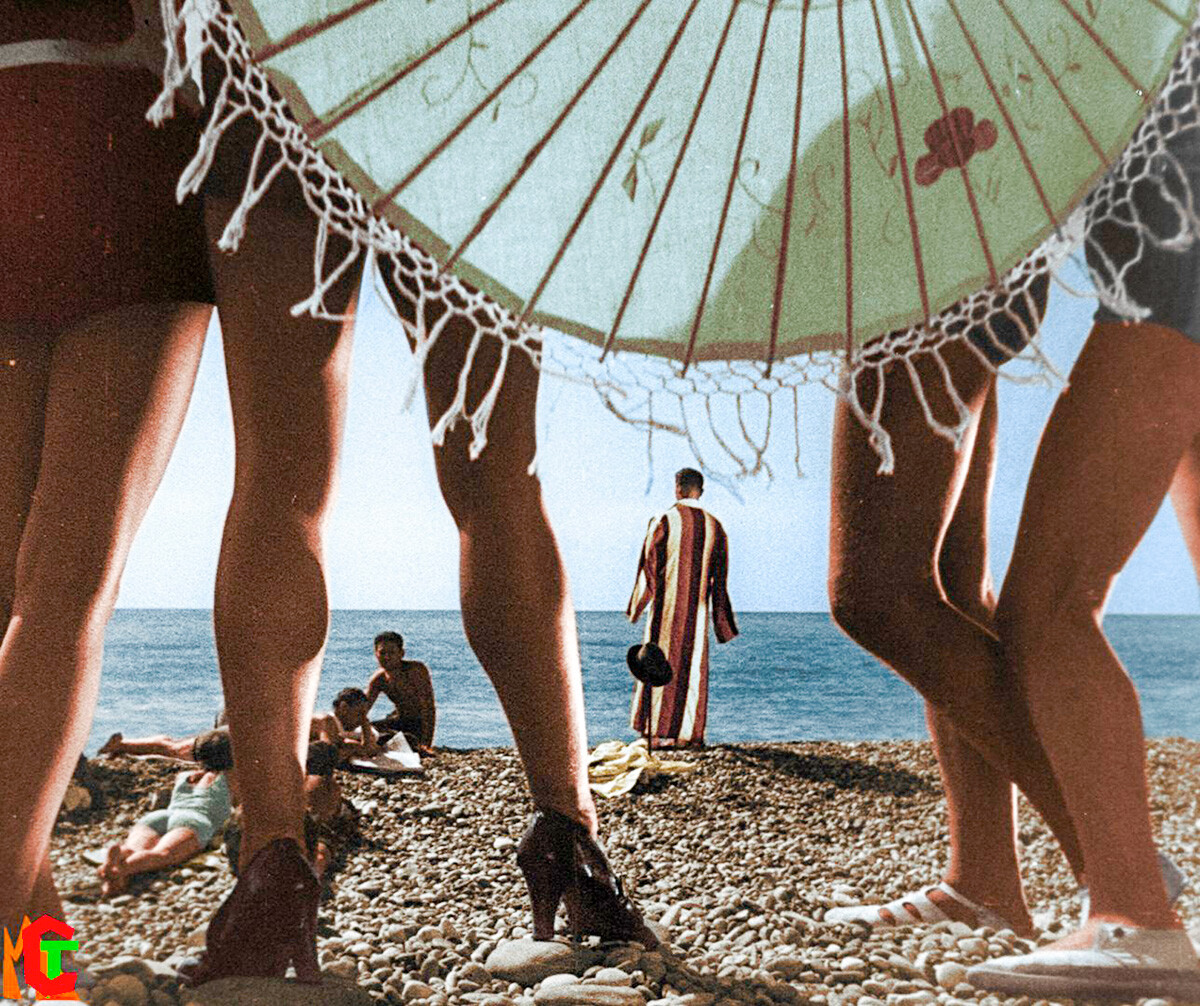
This was the first musical comedy made in the USSR following Stalin's personal instructions to develop the production of such movies. Its abundant music and songs celebrated Soviet life and industrial achievements. Prior to his work on the movie, director Alexandrov traveled to Hollywood - to see how musicals were made there. The movie propelled Lyubov Orlova and singer Leonid Utyosov to instant stardom. It was even screened in the U.S. and Charlie Chaplin spoke warmly about it.
4. ‘Circus’ (Grigory Alexandrov, 1936)

Another musical film starring Lyubov Orlova. According to the plot, the USSR becomes a new home for an American circus performer - there, she finds happiness and love. The movie proclaimed Soviet equality and tolerance. Apart from Orlova, the real star was a little black boy played by James Patterson. His own father had immigrated to the USSR from the U.S. in 1932 search of a better life.
5. ‘Alexander Nevsky’ (Sergei Eisenstein, Dmitri Vasilyev, 1938)

This is another large-scale work by Eisenstein, who had become a living legend by this time. The movie is about Ancient Russian prince Alexander Nevsky, who triumphed in battle against the Livonian (Teutonic) Order. One of the most epic scenes in the movie is the ‘Battle on the Ice’, in which mounted knights in heavy armor fall through the ice of Lake Peipus. What is interesting is that the scene was shot in summer in the Mosfilm backlot, where special sets had been built. The resulting patriotic picture, which created a "courageous image of our great ancestors", received Stalin's approval.
6. ‘Cossacks of the Kuban’ (Ivan Pyryev, 1949)
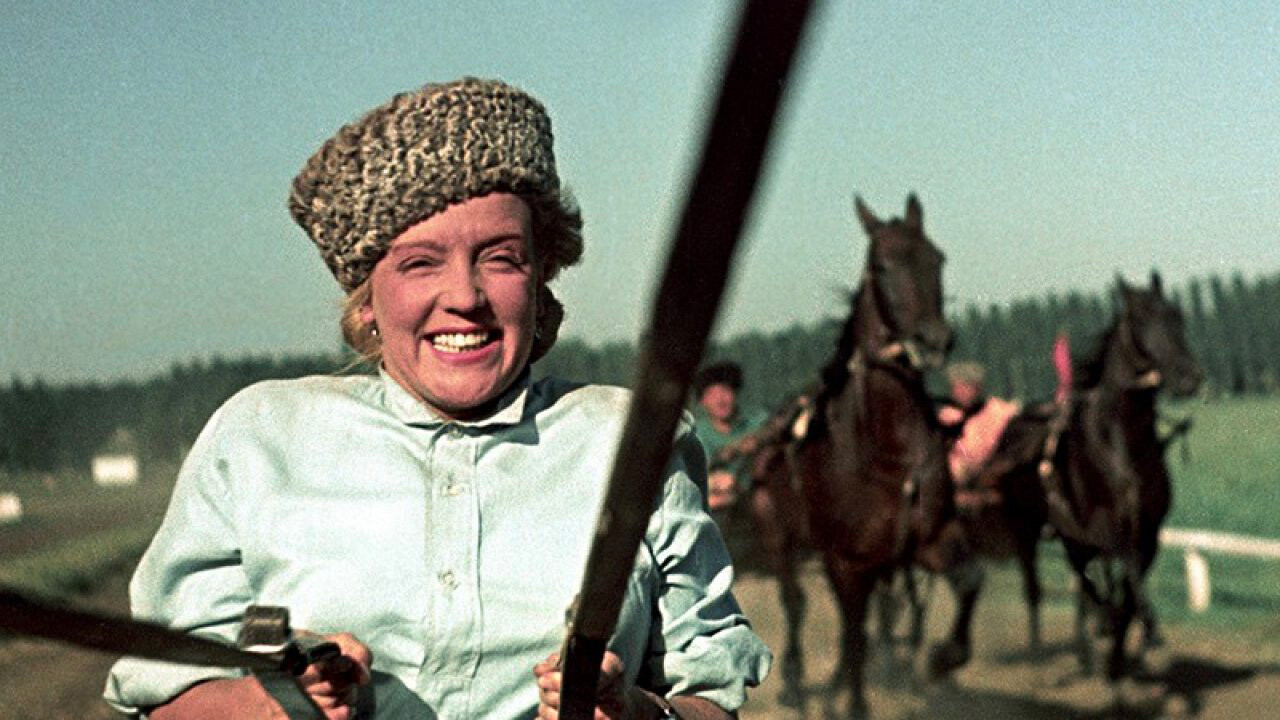
A postwar musical comedy about the happy lives of people in the Soviet Union. In the run-up to a rural fair, two collective farms in the south are competing over yields. Intrigue is added by the fact that the high performing workers and rivals in the movie fall in love with each other. Stalin liked the comedy very much, while Khrushchev shelved the movie for many years for whitewashing reality. In the late 1960s, the picture was restored and a slightly revised version was released.
7. ‘Carnival Night’ (Eldar Ryazanov, 1956)
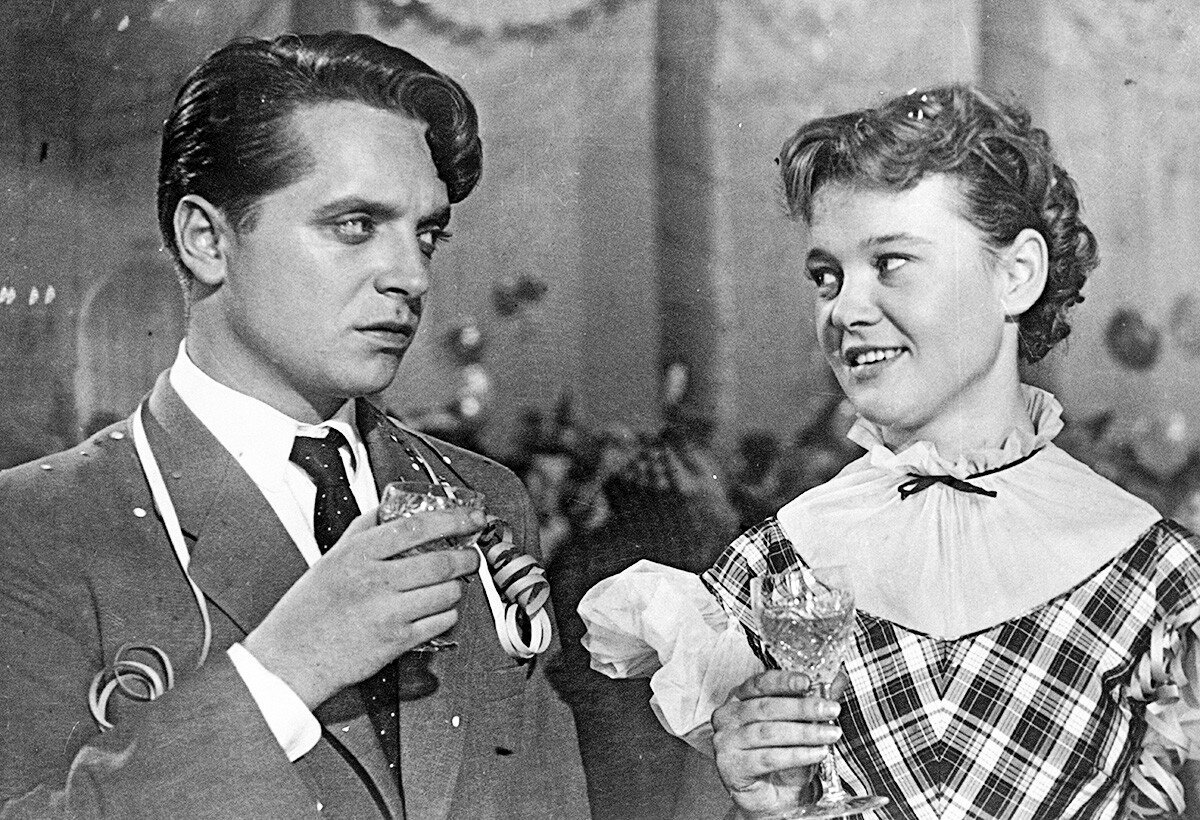
One of the first "New Year" movies by the director who would later make the legendary 'Irony of Fate' (1973). According to the plot, the employees of a House of Culture are getting ready for their New Year’s Eve fancy dress party. But, the director is constantly trying to make changes to the program and turn the fun-filled occasion into an altogether more serious and ideologically correct event. The comedy is full of music, jokes and innocent pranks. It also propelled a young Lyudmila Gurchenko to stardom.
8. ‘The Cranes Are Flying’ (Mikhail Kalatozov, 1957)

A lyrical war drama with hardly any war scenes, it has become a classic of world cinema about the war. It shows that tragedy happens not just on the front line, but also on the home front. The plot tells of the many personal misfortunes and the suffering of those who have lost their loved ones. Two young people in love stroll around Moscow till dawn and, early in the morning, learn that war has broken out. It is the only Soviet or Russian movie to date to be awarded the Palme d'Or at the Cannes Film Festival.
9. ‘Ivan's Childhood’ (Andrei Tarkovsky, 1962)
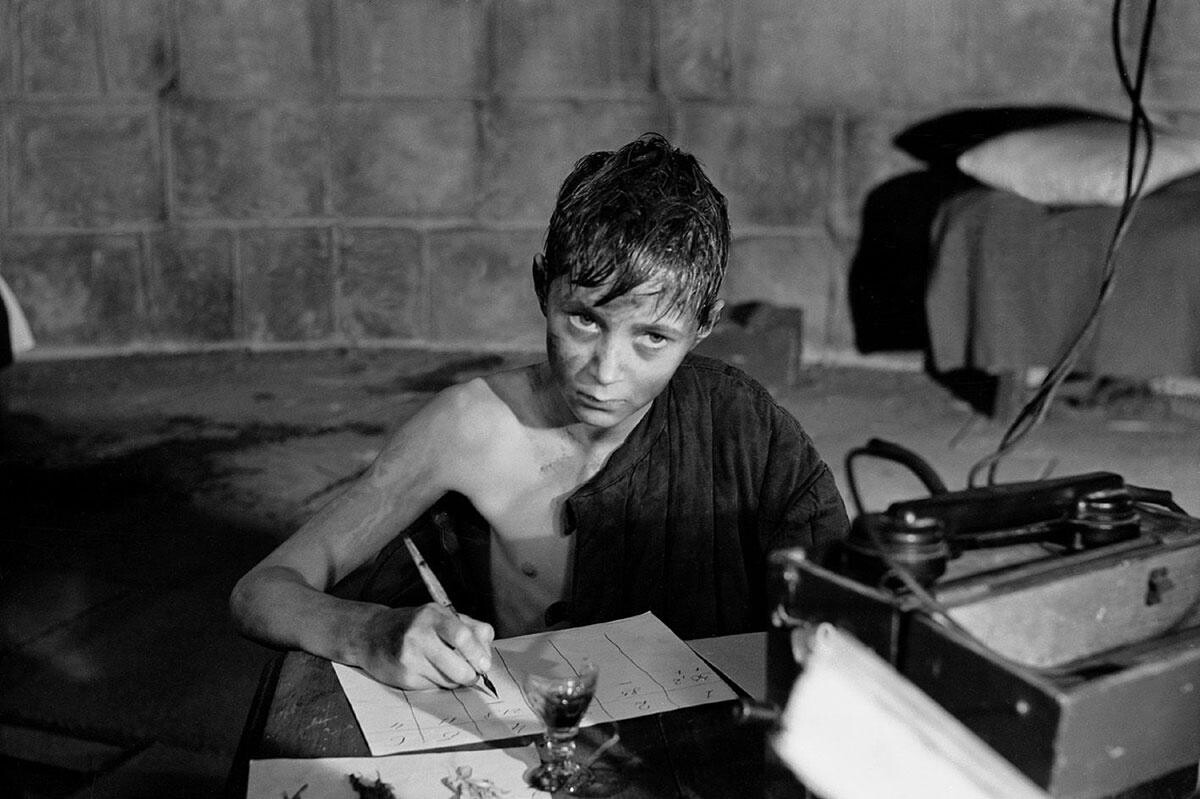
The first movie by celebrated director Andrei Tarkovsky, revealing his highly individual signature style. It’s also focused around World War II and how it has deprived a boy by the name of Ivan of his family and childhood. After the death of his parents, the small, resourceful and very brave lad helps Soviet troops and goes on an important and highly dangerous reconnaissance mission. The movie was the first ever Soviet entry to win the Golden Lion at the Venice Film Festival.
10. ‘Walking the Streets of Moscow’ (Georgy Daneliya, 1963)
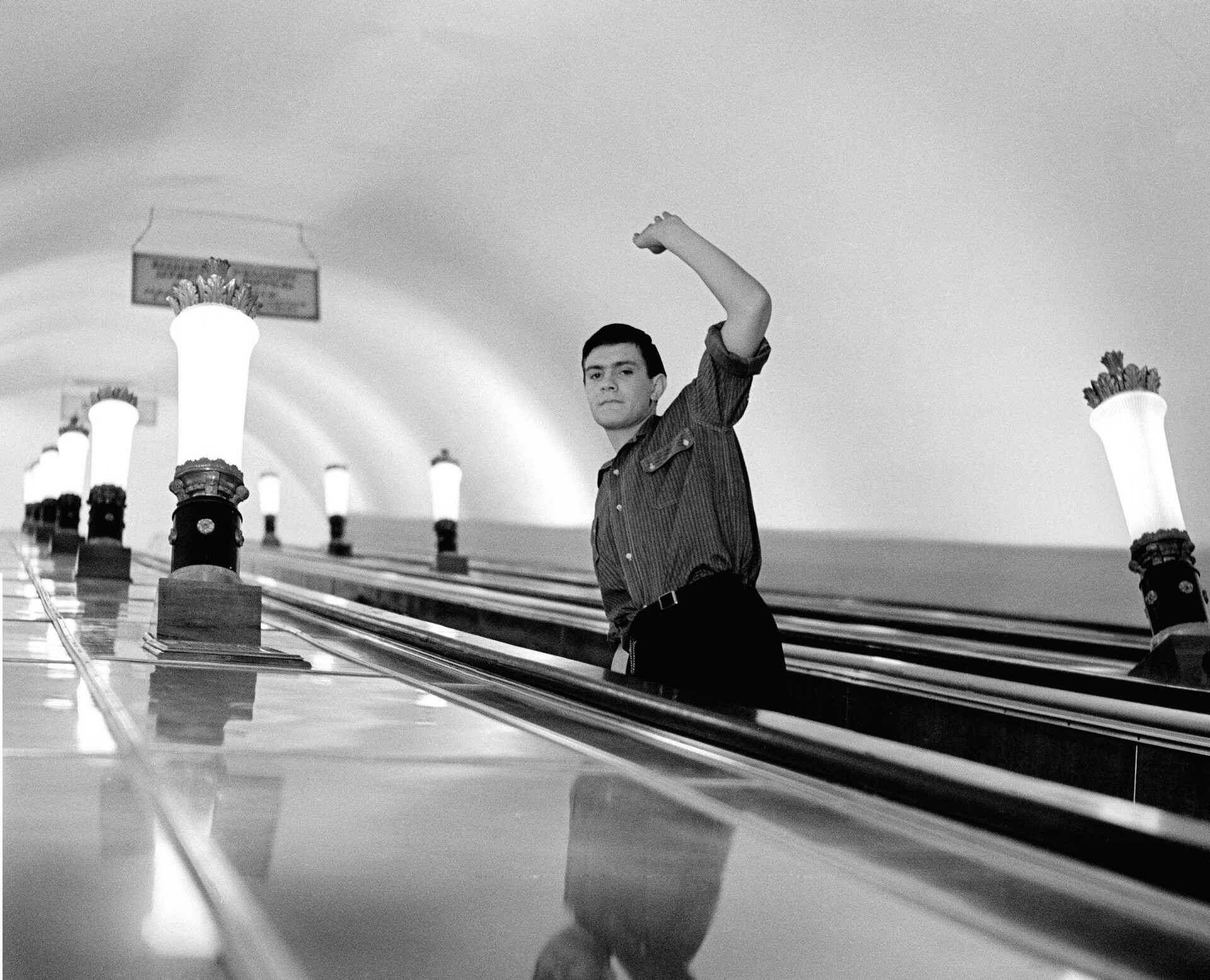
This is considered one of the most notable movies of the Soviet ‘Thaw’ era, full of hope and optimism. A young man from Siberia arrives in the capital, where he makes the acquaintance of a youthful Moscow Metro subway builder. Together, the two new friends wander around Moscow and deal with the various issues and problems they encounter on their way. The movie is very bright and sunny and offers many beautiful views of Moscow. A song from the movie also became an unofficial anthem of Moscow. Incidentally, it was the first big role for the then young Nikita Mikhalkov.
11. ‘War and Peace’ (Sergei Bondarchuk, 1965-1967)

One of the Soviet Union’s most successful movies, it was recognized as a masterpiece not only in the USSR, but also internationally. 'War and Peace' was the first Soviet movie to win an Oscar in the ‘Best Foreign Language Film’ category in 1969.It also received a Golden Globe in the same year.
The epic war drama is regarded as the best screen adaptation of Leo Tolstoy's novel. The movie was shot on such a grand scale that 9,000 historical costumes were specially made for it and over 15,000 extras were deployed in the battle scenes.
12. ‘Ordinary Fascism’ (Mikhail Romm, 1965)

A widely distributed documentary about the history of fascism and the rise to power of the Nazis in Germany, as well as the horrors of World War II. Director Mikhail Romm used trophy footage and still photographs in the making of the movie, which is edited in such a way as to create not only a piece of propaganda, but also a very emotional picture.
13. ‘Andrei Rublev’ (Andrei Tarkovsky, 1966)
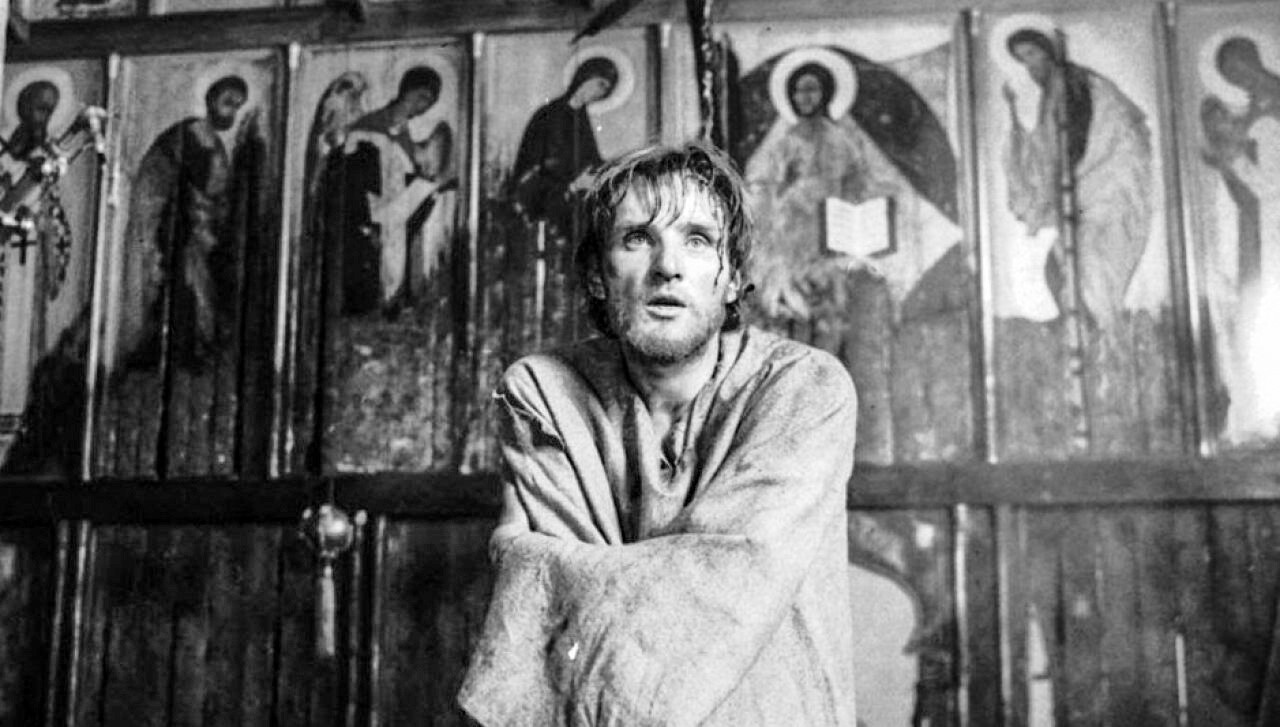
This movie about the life of Andrei Rublev, a medieval Russian icon painter, is one of a kind in Soviet cinema. It was an art house movie with profound philosophical overtones rediscovering not only the great painter of the 'Trinity' icon, but also Russian Orthodox Christianity and Russia, as a whole. The personality of Rublev was of enormous significance for the spiritual revival of the country after many years of Tatar-Mongol oppression. This challenging piece of art house cinema was a hugely important event for the Russian intelligentsia.
14. ‘The Diamond Arm’ (Leonid Gaidai, 1968)

This is one of the highest-grossing movies in the history of Soviet cinema. Leonid Gaidai's acclaimed masterpiece launched a myriad everyday phrases that are still widely used in "popular" parlance. The movie's genre is eccentric comedy, with a multitude of gags and sound and musical effects that every Soviet person found funny and easy to relate to. Smugglers mistake a modest and honest Soviet citizen for their middleman and insert stolen diamonds inside his orthopedic cast. The bandits then try to retrieve the diamonds, but the Soviet police, meanwhile, ask the clueless protagonist for help in catching the criminals. The lead part was specially written for actor Yury Nikulin.
15. ‘Gentlemen of Fortune’ (Aleksandr Sery, 1971)

An ordinary Soviet citizen, the head of a kindergarten, looks strikingly similar to the leader of a criminal gang nicknamed ‘Docent’. The Soviet police (militia) ask the teacher to help them catch the bandit and his accomplices - so they put him in prison and ask him to pretend to be a former criminal. The ultimate goal is to find out where the criminals have hidden the golden helmet of Alexander the Great stolen stolen from an archaeological excavation.
In 1972, the comedy became a Soviet box office. Today, based on ratings and polls, ‘Gentlemen of Fortune’ is generally considered the best movie in the history of Mosfilm studio. And, of course, many phrases from the movie have become idioms and are still often used by people in Russia.
16. ‘Ivan Vasilyevich Changes His Profession’ (Leonid Gaidai, 1973)
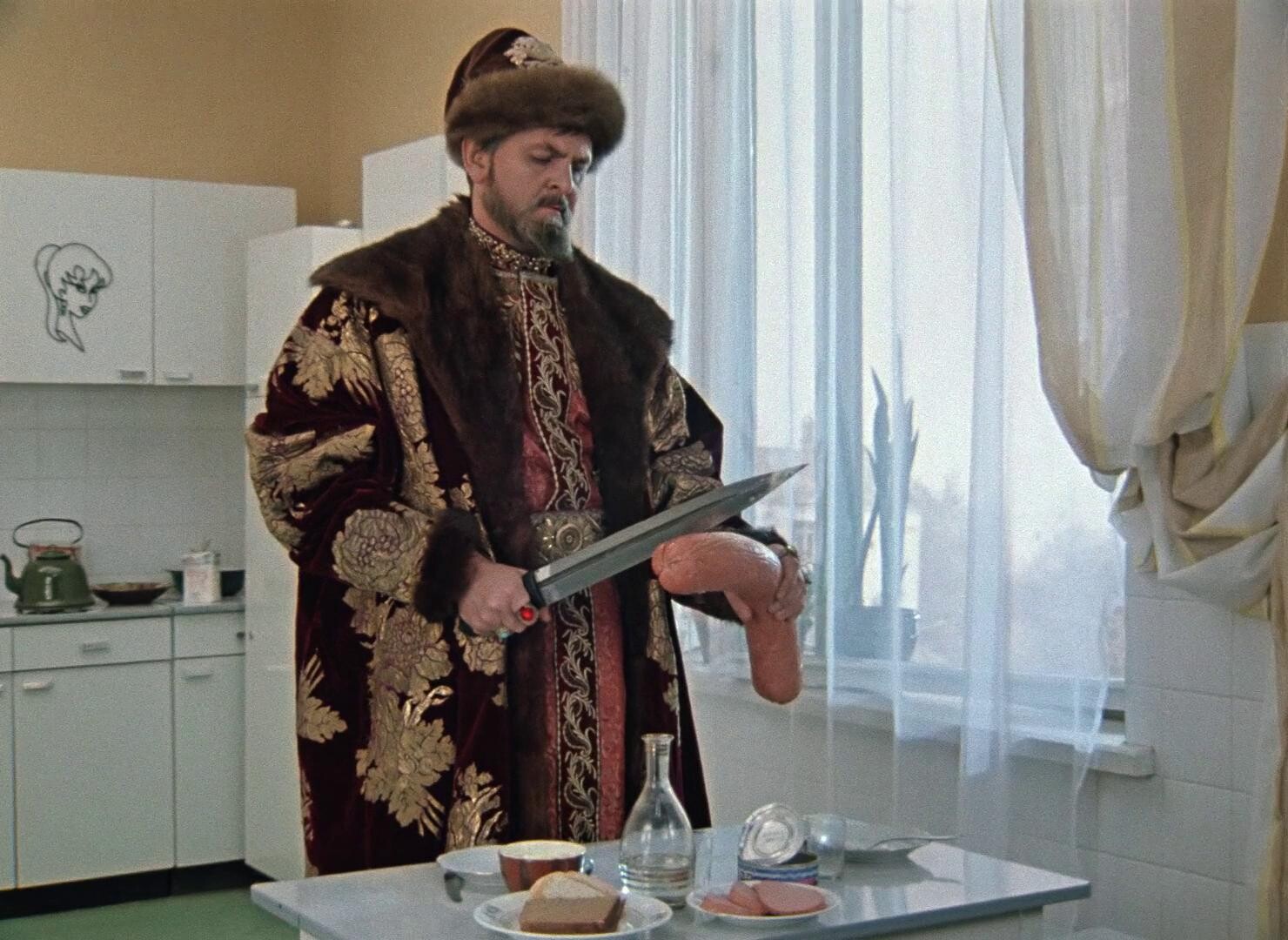
Another of Gaidai's cult comedies that won the hearts of audiences, which also was a box office smash hit, revolves around a Soviet scientist who invents a time machine and accidentally sends his apartment building manager, along with a house burglar, back to the Middle Ages! At the same time, Tsar Ivan the Terrible is transported to Soviet-era Moscow… It’s a loose adaptation of a play by Mikhail Bulgakov, a writer practically banned in the Soviet era.
17. ‘Mirror’ (Andrei Tarkovsky, 1974)

One of Tarkovsky's most important and outstanding movies - and a very personal autobiographical piece of filmmaking, in which he deploys his highly individual figurative cinematic language to muse about childhood, the family and motherhood, with a plethora of references and allusions to art. The movie does not have a clear-cut storyline, but consists of dreams and fragmentary reminiscences about life and world events. Verses by the director's father Arseny Tarkovsky are voiced off camera.
18. ‘At Home Among Strangers’ (Nikita Mikhalkov, 1974)
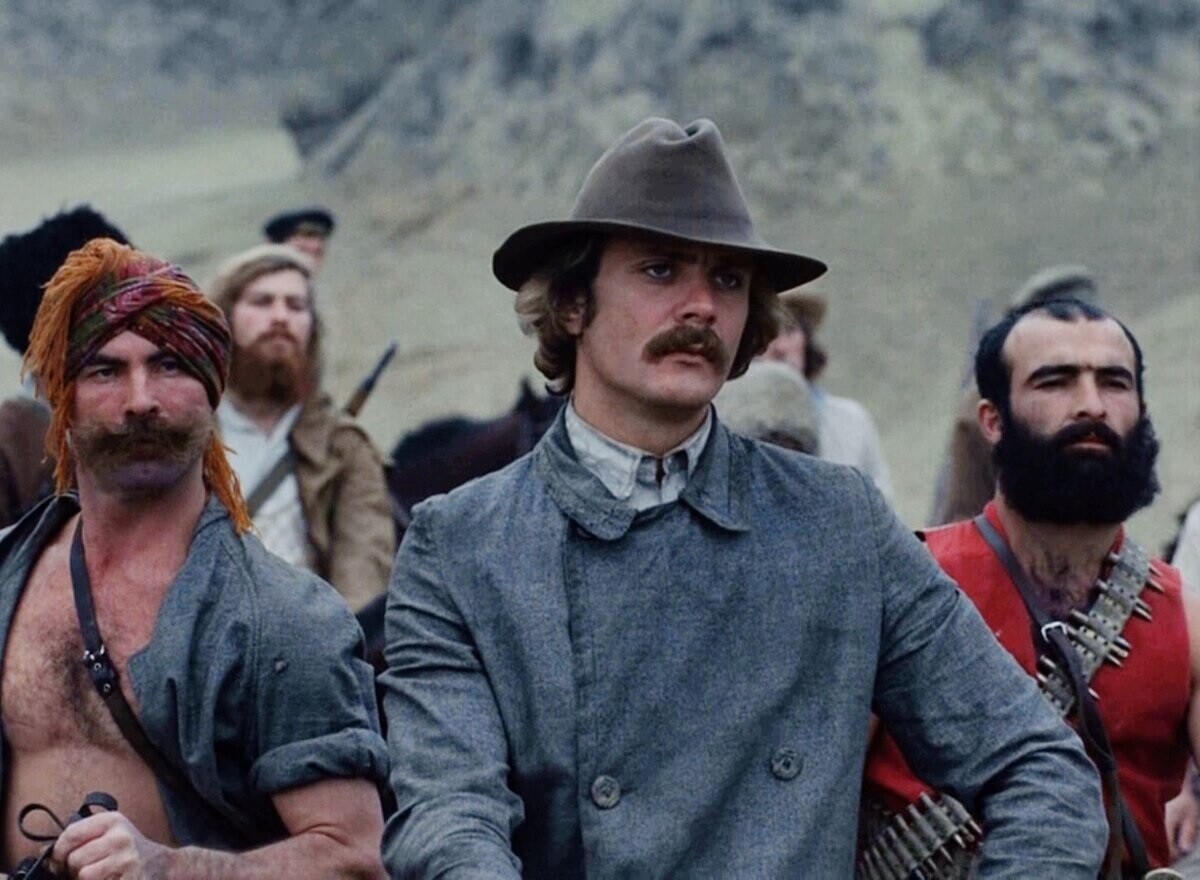
In this movie about the Civil War in Russia (the full Russian title translates as 'A Friend Among Foes, A Foe Among Friends'), Red Army soldiers, members of the Cheka secret police and bandits are all on the trail of some gold seized from the rich. The adventure movie was shot according to ‘Eastern’ genre conventions (so called by analogy with the ‘Western’), with an abundance of action scenes, fights and stunts. Acknowledged today as a cinema classic, it was Nikita Mikhalkov's feature-length directorial debut, in which he also played one of the lead roles.
19. ‘Dersu Uzala’ (Akira Kurosawa, 1975)
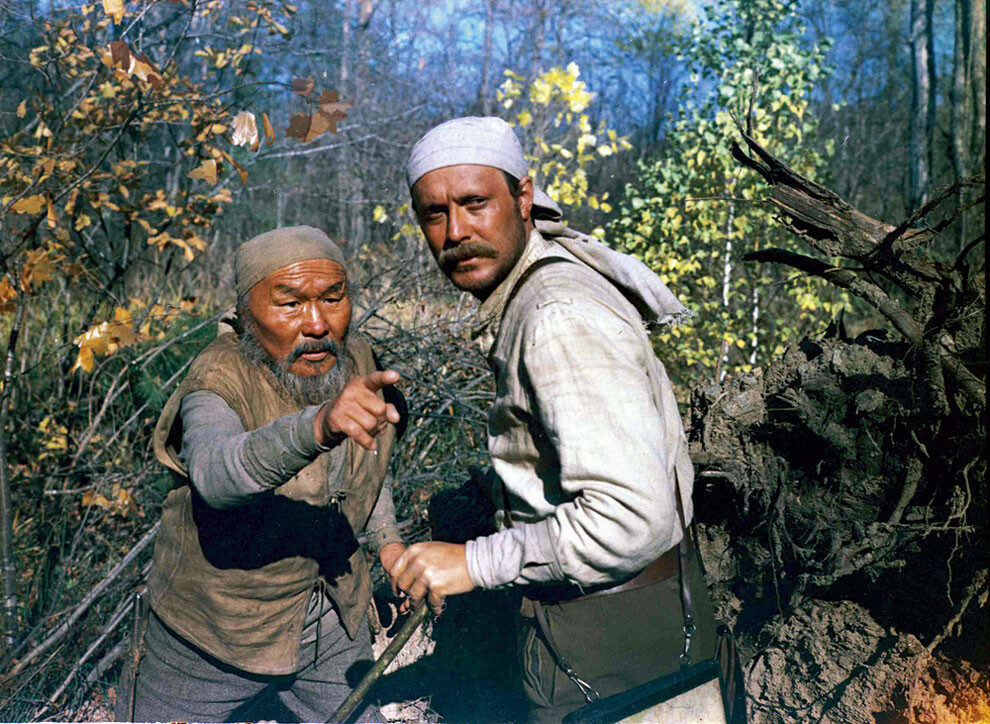
The collaboration between Mosfilm and the celebrated Japanese director earned an Oscar in the ‘Best Foreign Language Film’ category. Kurosawa had already revealed a love of Russian culture with his film 'The Idiot', inspired by Fyodor Dostoevsky’s novel. This time, he made a screen adaptation of traveler Vladimir Arsenyev's ethnographic accounts 'Across the Ussuri Kray' and 'Dersu Uzala'. The explorer went on expeditions to the Far East, during which he was assisted by a indigenous Nanai hunter named Dersu Uzala.
20. ‘The Irony of Fate, or Enjoy Your Bath!’ (Eldar Ryazanov, 1975)
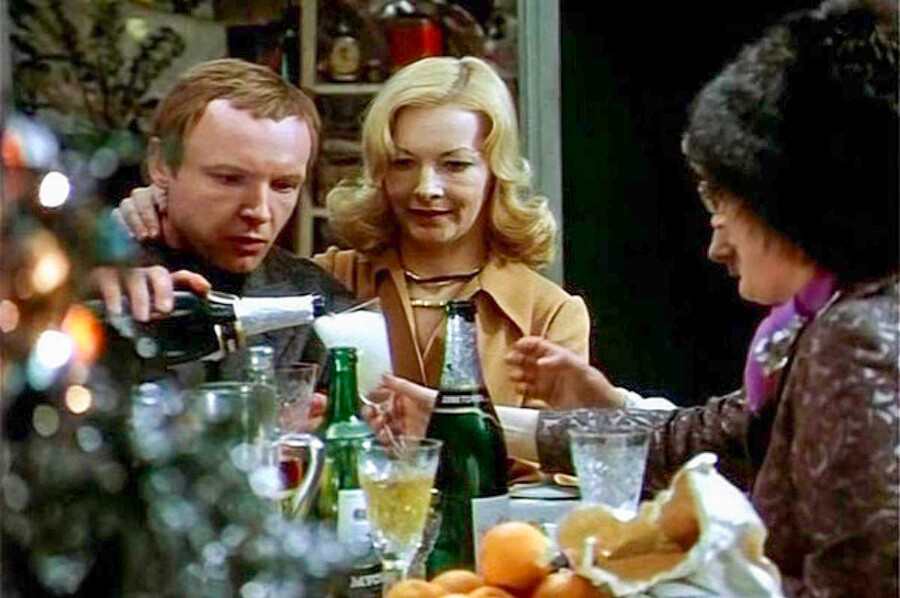
One of the most famous and universally loved of Soviet comedies, it is shown without fail on TV every year on December 31 and has become as quintessential a part of Russian New Year as the festive tree and ‘Olivier’ salad. The lyrical comedy starts with the lead character getting blind drunk with his friends in Moscow on the eve of New Year - and then being put on a plane bound for Leningrad in place of his friend by mistake. Arriving at a standard-design housing development identical to his own, he does not even notice that he is letting himself into someone else's aapartment.
21. ‘Mimino’ (Georgy Daneliya, 1977)
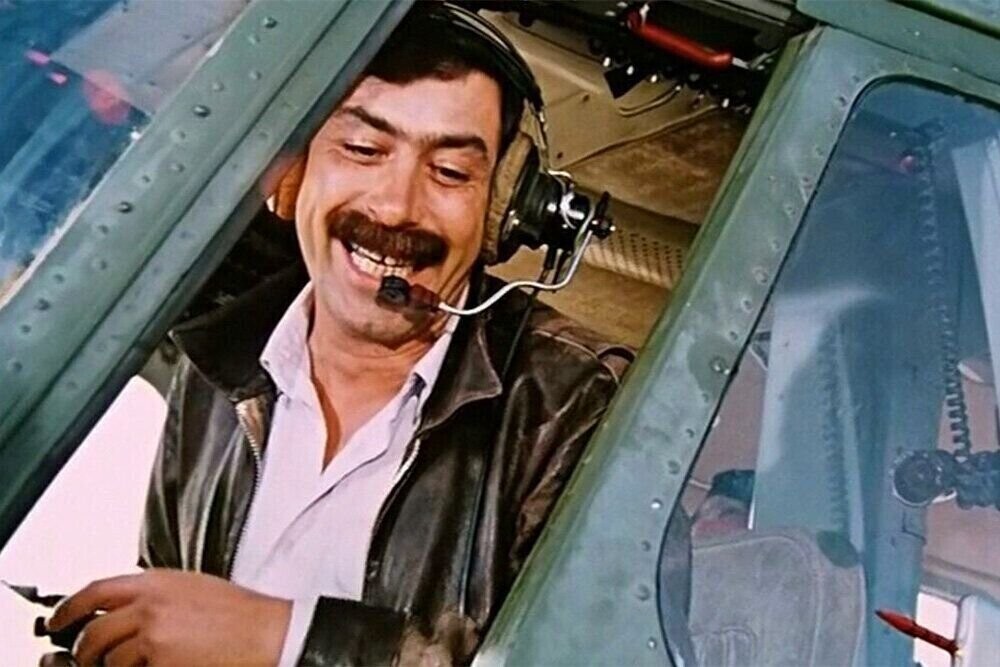
This movie is a real homage to Soviet Georgia - its nature, its local color and of course its people. The lead role was played by actor and singer Vakhtang Kikabidze. The character he plays, nicknamed Mimino, is a bush pilot who flies helicopters between Georgia's mountain villages. But, he decides to retrain as an international airline pilot, for which purpose he has to go to Moscow. His dream comes true, but he cannot forget the mountains of home. The Georgian song 'Chito-Gvrito' is sung by all inhabitants of post-Soviet space to this day.
22. ‘Siberiade’ (Andrei Konchalovsky, 1978)
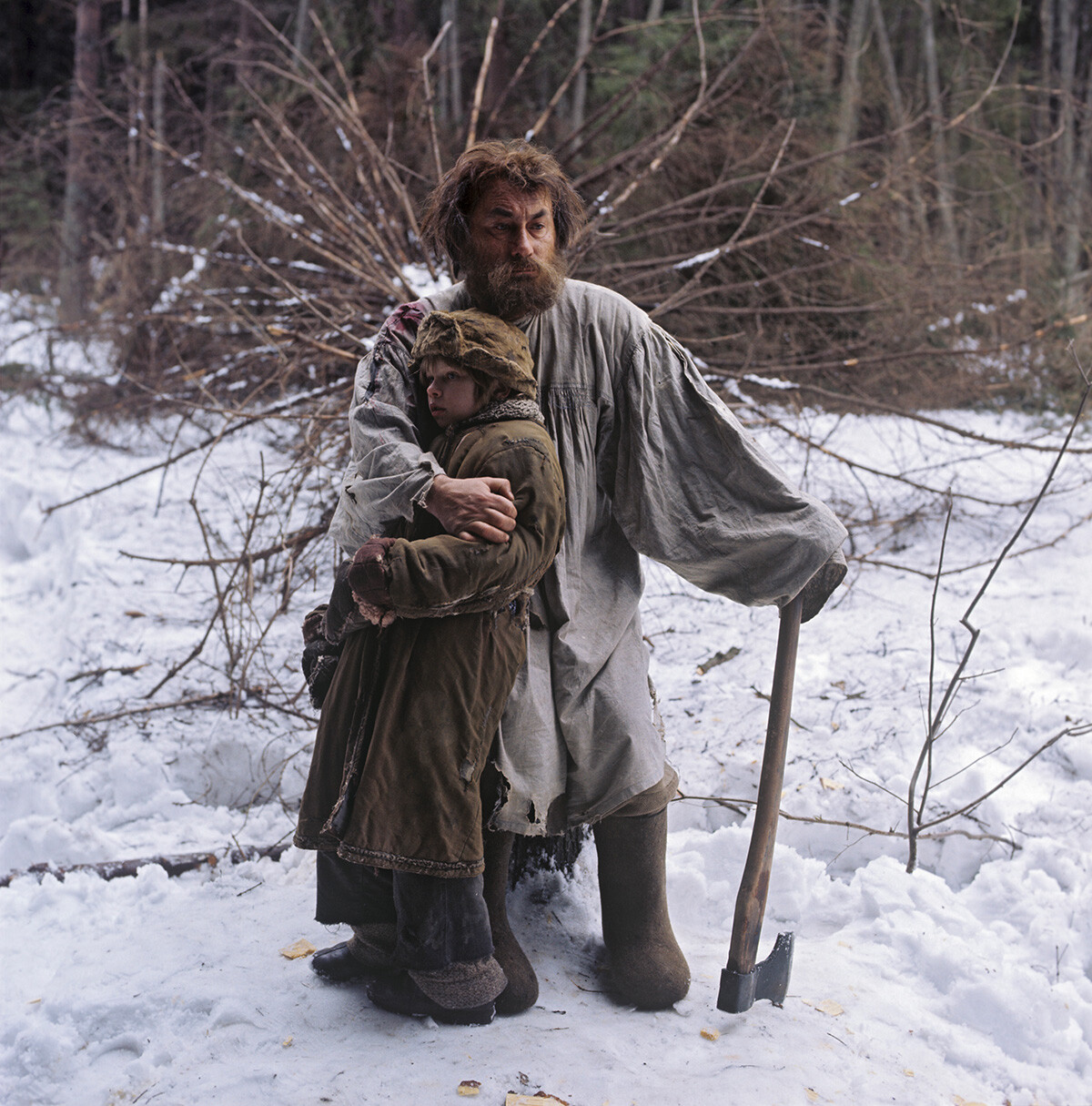
This four-part epic saga won the Grand Prix at Cannes. The movie tells the story of several generations of two Siberian families, with the viewer following the highs and lows of their personal lives against the backdrop of the watershed events of the 20th century - the Bolshevik Revolution, Civil War and World War II. A profusion of well-known Soviet actors played in the movie, including Vitaly Solomin, Nikita Mikhalkov and Lyudmila Gurchenko.
23. ‘Moscow Does Not Believe in Tears’ (Vladimir Menshov, 1979)

Another Oscar-winning Soviet movie and domestic box office hit (and the second highest grossing movie in the history of the USSR). The movie is a melodrama about a provincial girl who goes to Moscow to seek her fortune in the period of the ‘Khrushchev Thaw’. And, despite the myriad obstacles and adversities that fate places in her path, she forges a successful career for herself. But, for a long time, she cannot find love… Many quotations from the movie have entered the language as popular sayings and particularly: "At 40, life is only just beginning". Meanwhile, the song 'Alexandra' performed by Sergei Nikitin and Tatyana Nikitina became an unofficial anthem of Moscow.
24. ‘Stalker’ (Andrei Tarkovsky, 1979)
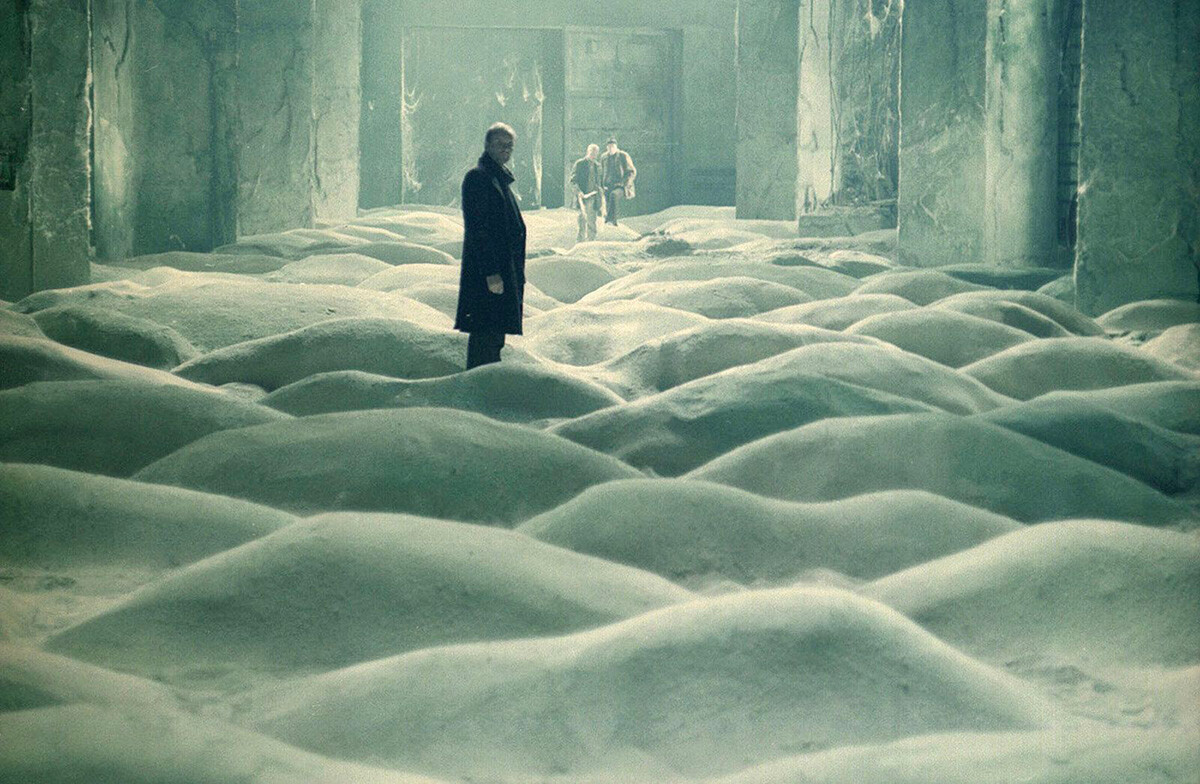
The Strugatsky brothers worked on the screenplay alongside Tarkovsky - it was inspired by their 'Roadside Picnic', a very popular science fiction novel in the USSR. Filtered through Tarkovsky's cinematic language, this piece of science fiction is turned into a philosophical parable about the danger of people's deepest desires (and, in some ways, it also foreshadowed the Chernobyl disaster). The director said that it took his "whole life to prepare for the movie" and regarded it as the culmination of his creative journey. It subsequently won a special jury prize at Cannes and played to packed cinemas in the U.S., France and Germany.
25. ‘Love and Pigeons’ (Vladimir Menshov, 1984)

This musical comedy by the Oscar-winning director of 'Moscow Does Not Believe in Tears' became one of the universal favorites of Soviet cinema audiences. The story is not set in Moscow, but in a rural backwater, home to an ordinary worker named Vasily and his family. He is a dreamer and pigeon fancier and looks after his pigeon house while his wife nags him for his fecklessness and for frittering money away needlessly. One day, Vasily goes for treatment at a health spa by the sea, where he meets a city-dwelling temptress quite unlike his rustic wife…
26. ‘Come and See’ (Elem Klimov, 1985)
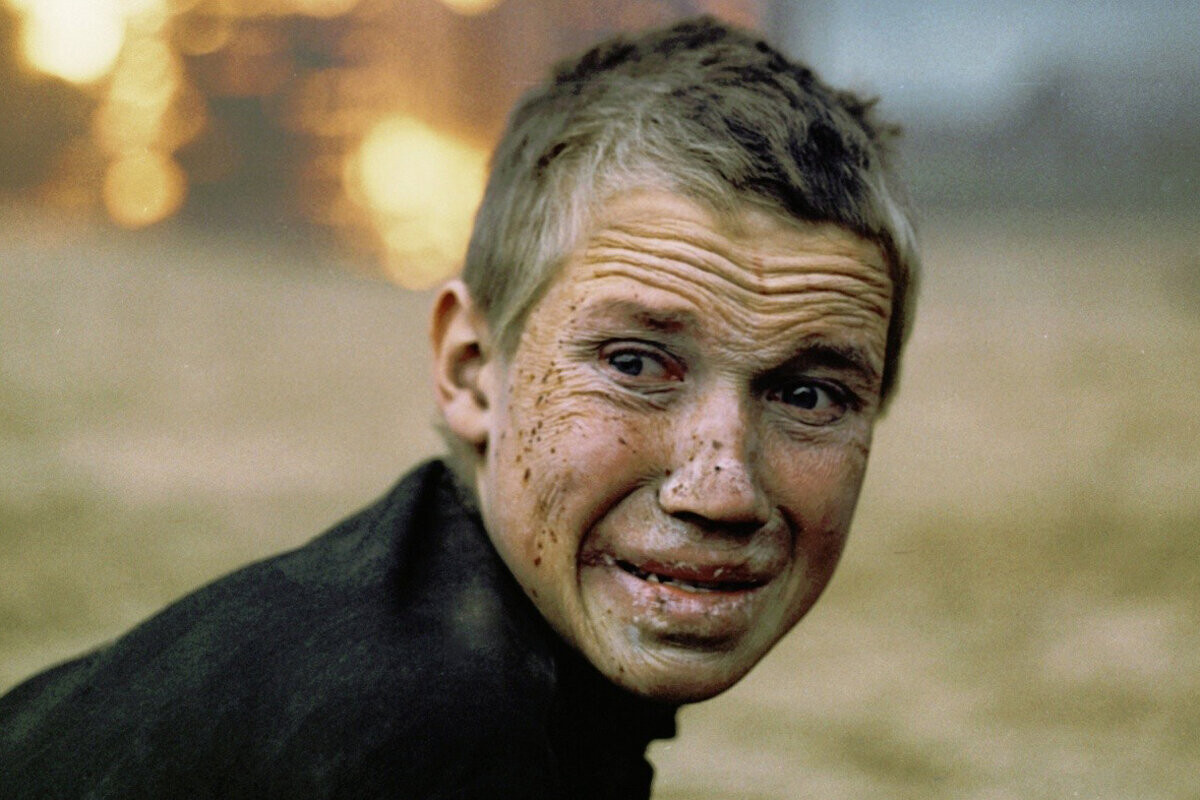
One of the most authentic and hard-hitting movies about the Great Patriotic War (aka Word War II). The events of 1943 in Byelorussia are shown through the eyes of a teenager (a remarkably powerful performance by Alexei Kravchenko). And we are shown how war isn't just about great battles and momentous victories, but also the ordinary person's struggle for survival. The movie was the main cinematic event of the year in the USSR and gained worldwide recognition. According to the director, when 'Come and See' was screened abroad, ambulances had to be stationed outside cinemas to take away overly impressionable audience members.
Find out more about the movie here.
27. ‘Kin-dza-dza’ (Georgy Daneliya, 1986)
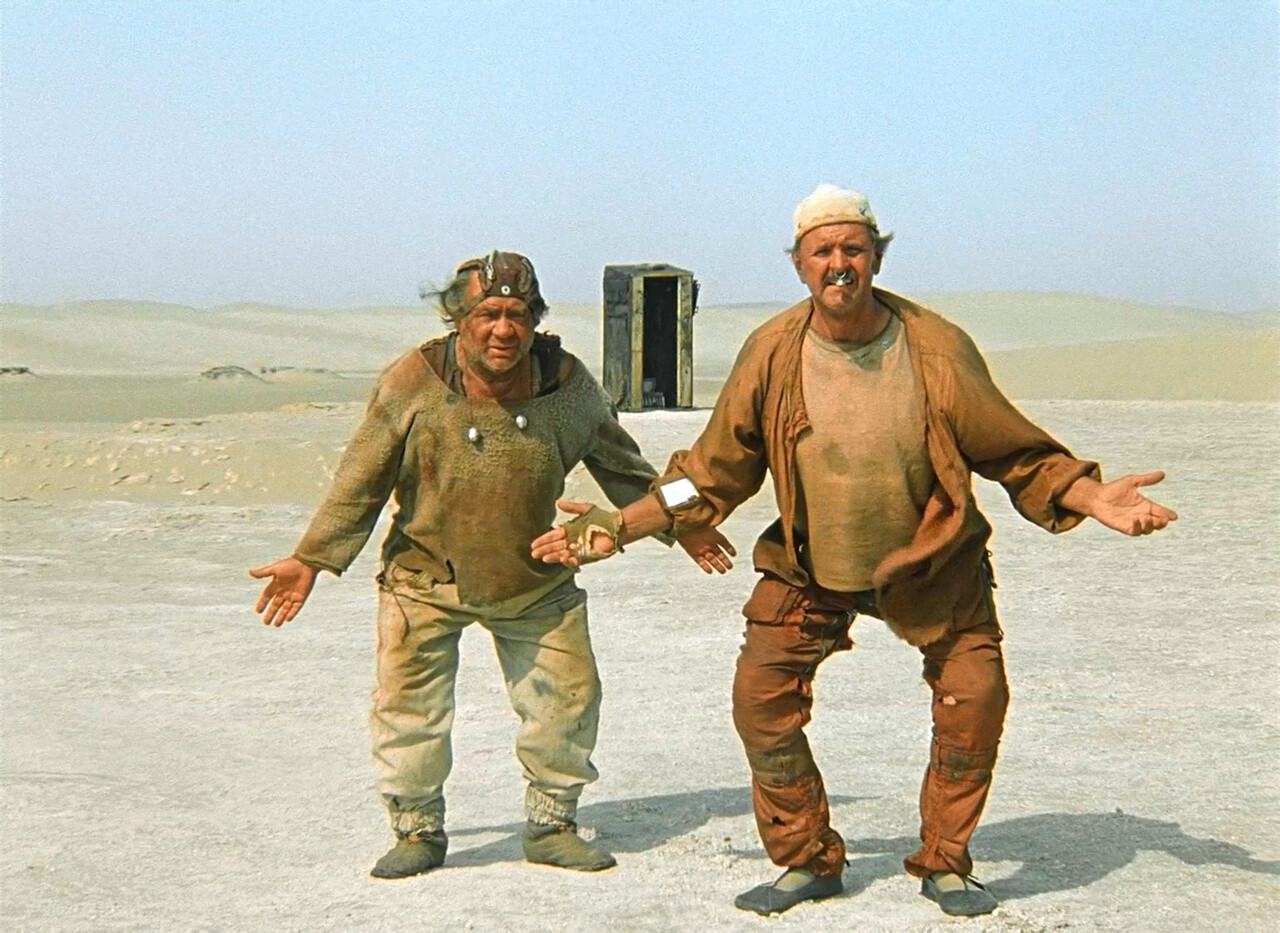
An ordinary Soviet citizen has a chance encounter with an alien, who transports him aboard a special machine to a desert. The trouble is it's on another planet. The allegorical tale about space is a subtle satire on class war. Many viewers and critics failed to understand the film and lambasted it, but Daneliya's finely-tuned humor also earned him a large number of fans. And the word ‘pepelats’ used to denote a fantastic spaceship is used in conversational Russian to this day to refer to various kinds of machines and aircraft.
28. ‘Courier’ (Karen Shakhnazarov, 1986)
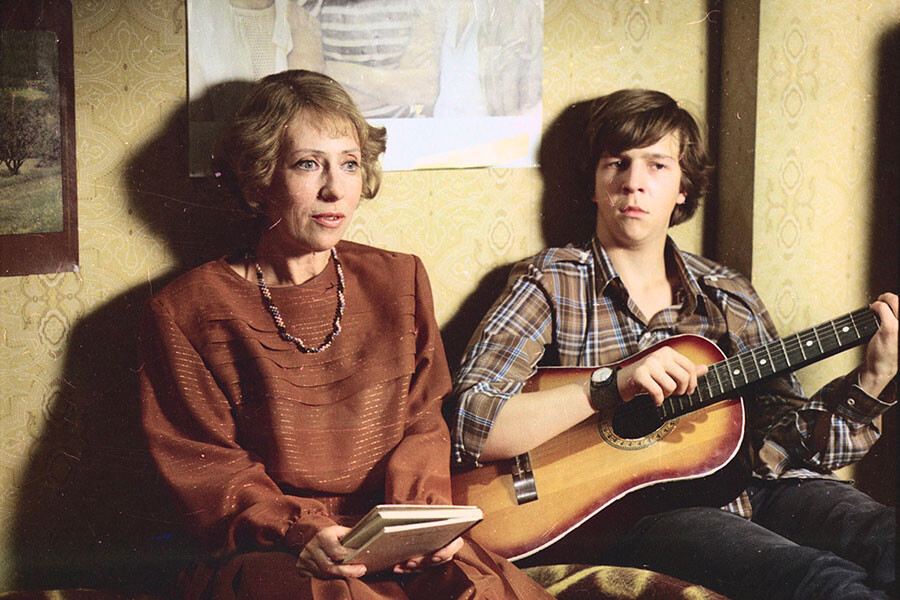
This perestroika-era movie (also known in English as 'Messenger Boy') was a big hit for director Karen Shakhnazarov, who heads Mosfilm today. After leaving school, Ivan, a young Muscovite, fails to get into college and finds a job as a courier. One day, he delivers a manuscript to the house of a professor and meets his daughter. She is a "rich kid", while he is an impoverished guy. Nevertheless, they start dating. What will daddy professor say? And what sort of future awaits the young man?
29. ‘Assa’ (Sergei Solovyov, 1987)
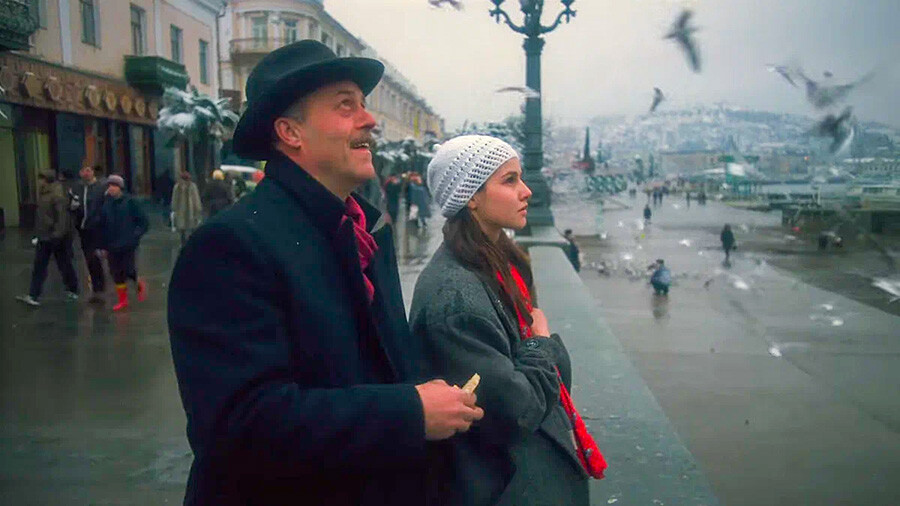
The plot revolves around a holiday romance between a nurse named Alika and Bananan, a guy who earns extra cash by singing in restaurants with his friends, and their confrontation with the girl's mafioso sugar daddy. 'Assa' was the movie in which the public at large heard the now-legendary Viktor Tsoi song 'I Want Changes!' for the first time, as well as compositions by other Soviet underground rock musicians. Director Sergei Solovyov used an allegorical and experimental cinematic language to subtly convey the atmosphere of the final years of the USSR. The movie ended up becoming one of the anthems of perestroika-era Russia.
30. ‘Intergirl’ (Pyotr Todorovsky, 1989)
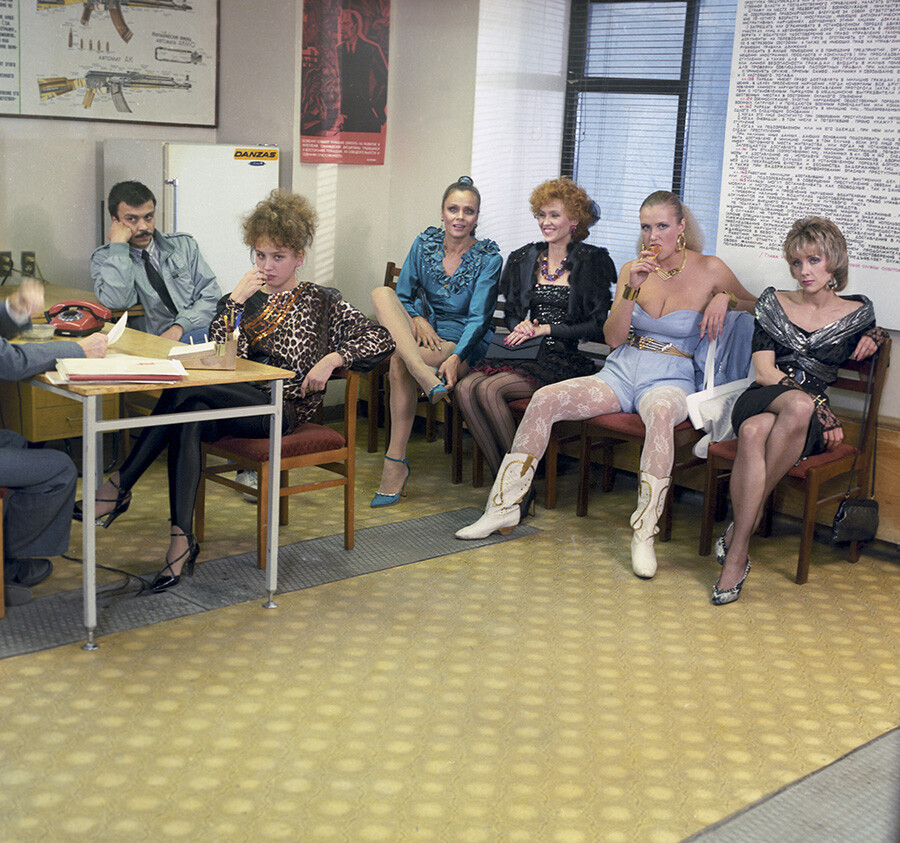
A movie about a completely new era and new way of life and how this new set of circumstances rubs up against the old Soviet ways. Female characters take center stage in the movie, which would be difficult to imagine in classic Soviet cinema. They are "hard currency" prostitutes who target foreigners. The movie depicts their daily lives and tells of their problems, their poverty-stricken families, their dreams of a better life and, of course, of a true and pure love.


